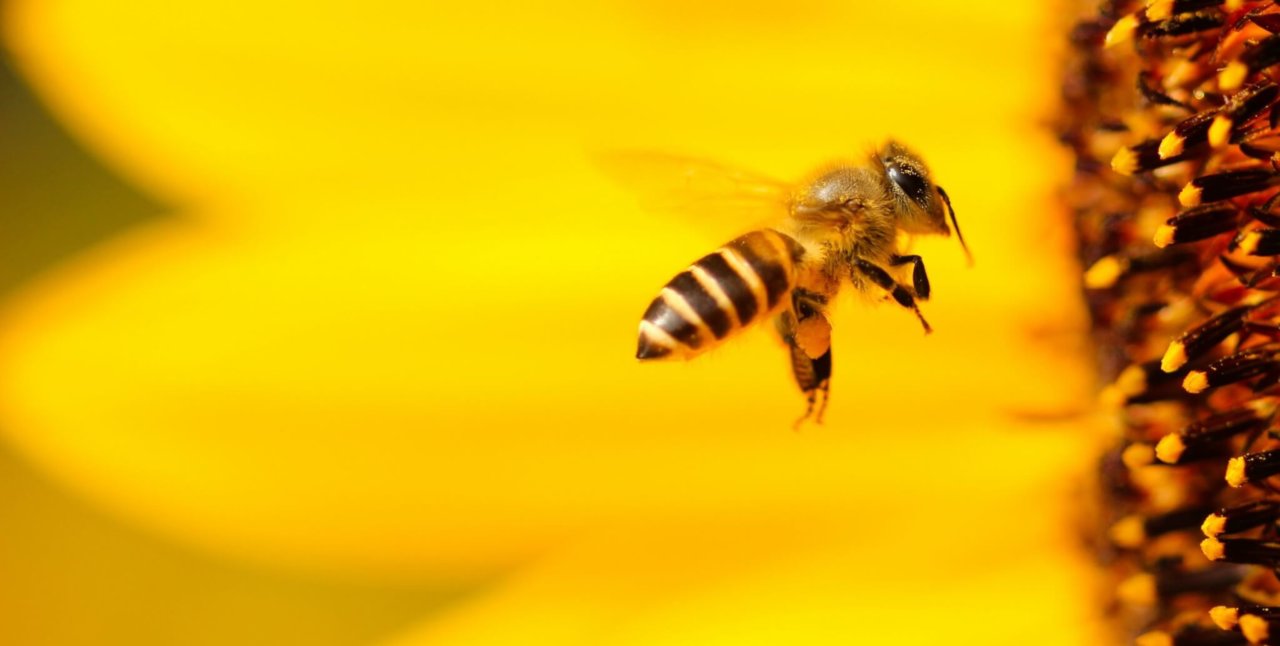It’s no secret that bees are integral to a thriving ecosystem. Unfortunately, however, it’s also not a secret that they are disappearing at a rapid rate. Losing honey is the most apparent snag of their quick decline, but, for the unaware, bees affect way more than you might even realize. In fact, insect pollination alone makes 35% of our global food production possible, and not only that, but somewhere around 80% of the world’s flowering plant species rely on pollination. So, while these buzzworthy insects are small, they are undoubtedly mighty.
If you feel overwhelmed in the face of this unrelenting tragedy, you’re not the only one. It will take a lot for us as a society to properly course correct, but thankfully, there are tiny, actionable things we can do on a micro level to inspire a positive change. If you are not yet ready to give up apples, cucumbers, broccoli, almonds, and much, much, more, here are some steps you can begin taking today.
Four easy and actionable steps you can take today to help save the bees
Shop brands dedicated to sustainable beekeeping
When you buy from brands that prioritize ethics, such as Beekeeper’s Naturals, you can feel assured that your hard-earned money isn’t going towards building something that you don’t believe in. Beekeeper’s Naturals never overharvests their own hives, never feeds their bees anything but their own products, and carefully ensures that their green apiaries are remote and far from harmful chemicals. You can shop their throat relief remedies at The Sweet Potato in Toronto.
Avoid Pesticides
Pesticides, which are commonly used in urban and agricultural spaces to ward off and kill pests, can have a lot of unintended consequences. Of which includes killing pollinators that are essential to the balance of our ecosystem. While no one likes to wake up to their garden being ravaged by tiny animals and insects, the consequences can be detrimental. Especially when you are planting something with a lot of nectar or pollen, think twice before using pesticides!
Plant organic flowers
If you have a front or back yard, a balcony, or participate in community gardens, this is a fun and sightly way to give bees a hand. Not only is gardening a relaxing and calming pastime with beautiful, tangible results, but it can also go a long way in helping our planet. When you plant organic, pesticide-free flowers, you help build a safe habitat for bees to occupy and thrive.
Spread the word
Don’t underestimate the power of word of mouth. Many people have a vague understanding of what it means to lose our bees, and when they don’t feel immediately affected, it’s hard for them to justify altering their behaviour to themselves. Serving friends and family with hard facts while also letting them in on very tiny actionable steps they can take to improve the situation can have a tremendous impact. What’s even more incredible is that you never know where that web of truth will lead. You may tell someone, who tells someone else, who tells someone else, and suddenly, your words made an impact threefold.
The unfortunate situation plaguing bees is unfortunately not going to solve itself overnight. But, if you shop sustainable brands like Beekeeper’s Naturals or let a friend in on what you know, you may be surprised by the difference you can make. You’ve just got to bee-lieve!

